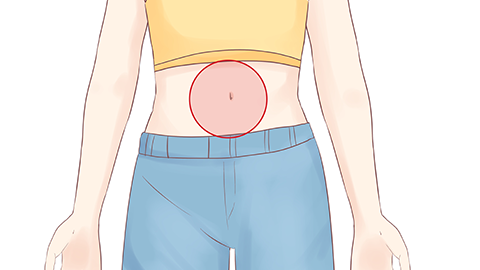Why is the lower abdomen still large after childbirth?
Postpartum abdominal distension may be caused by abdominal muscle relaxation, fat accumulation during pregnancy, incomplete uterine involution, pelvic inflammatory disease, or ascites. If abnormalities occur, timely medical consultation is recommended. Detailed explanations are as follows:

1. Abdominal muscle relaxation: During pregnancy, the enlarging uterus over-stretches the abdominal muscles, causing muscle fiber tears. Postpartum, the muscles' elasticity decreases and they cannot quickly contract, resulting in a protruding lower abdomen. Gradual postnatal abdominal muscle training is recommended, such as diaphragmatic breathing and Kegel exercises.
2. Fat accumulation during pregnancy: To meet the nutritional demands of the fetus, maternal caloric intake increases during pregnancy, with excess energy stored as abdominal fat. After childbirth, reduced caloric expenditure may prevent timely fat breakdown, leading to abdominal enlargement. A balanced diet with reduced high-sugar and high-fat foods and increased protein and dietary fiber intake is advised.
3. Incomplete uterine involution: Postpartum weakening of uterine contractions may prevent the uterus from returning to its pre-pregnancy size on schedule. Retained lochia within the uterine cavity can cause uterine enlargement and a protruding lower abdomen, often accompanied by prolonged vaginal bleeding. Doctors may prescribe medications such as oxytocin injection, motherwort seed granules, or new hua granules to help expel residual tissue.
4. Pelvic Inflammatory Disease: Bacterial infection after childbirth may lead to pelvic inflammation, causing pelvic congestion, edema, and even pelvic effusion, resulting in lower abdominal distension. This is often accompanied by symptoms such as lower abdominal pain and fever. Doctors may recommend medications such as ceftriaxone sodium for injection, metronidazole tablets, or doxycycline hydrochloride tablets to alleviate symptoms.
5. Ascites: Postpartum malnutrition, hypoalbuminemia, or abnormal portal venous pressure may lead to abnormal fluid accumulation in the abdominal cavity, causing abdominal distension, often accompanied by bloating and loss of appetite. Treatment typically requires diuretics such as furosemide tablets, spironolactone tablets, or human albumin injection under medical supervision to promote fluid absorption.
In daily life, postpartum women should balance rest and physical activity, avoid excessive fatigue, and maintain a light yet nutritionally balanced diet.





